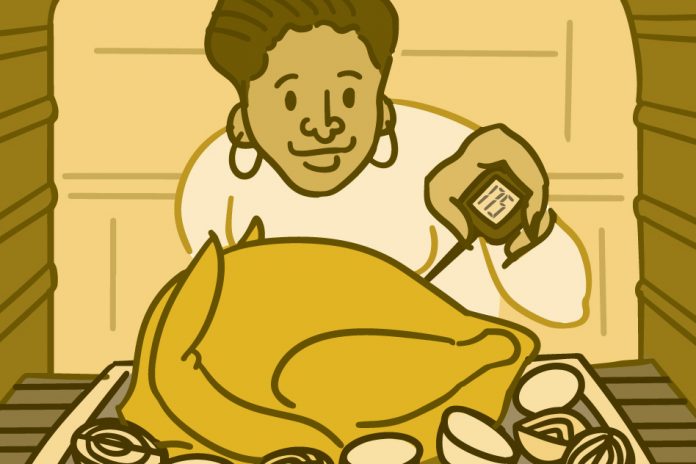Learn How to Keep Food Safe
Don’t let bad food spoil your celebrations this holiday season. Follow safe food practices so everyone can keep enjoying the festivities after their meals.
Germs like bacteria, viruses, and parasites—or the toxins they produce—can get into your food and make you sick. “The difficult thing is you can’t see these germs, and you can’t taste them,” says Dr. William Alexander, an NIH expert in food-borne illnesses.
Germs can get into your food many ways. They may already be in some foods you buy, like raw meat, eggs, or fruits and vegetables. To lessen or get rid of germs, rinse your produce well and cook food to appropriate temperatures.
Poor hygiene by food handlers can also lead to food contamination. That’s why it’s important to wash your hands and any surfaces food touches when you’re preparing it.
Leaving food out for too long or not storing it at proper temperatures can help germs grow and multiply. Be sure you’re following safe food practices. Learn more about food safety.
When too many germs get into your food or water, you can get sick. Your symptoms and how long they last depend on the type of germ or toxin, and how much you consumed. You may get diarrhea, abdominal pain, vomiting, fever, or chills.
“Most people who eat infected food get over it with a few, very mild symptoms,” says Dr. Shahida Baqar, an NIH expert on food-borne illnesses. But, sometimes, the bugs can multiply in your gut and lead to more serious illness and disease.
Certain people are at higher risk for severe illness. These include children under age 5, pregnant women, people with weakened The system that protects your body from invading viruses, bacteria, and other microscopic threats.
immune system, and those over 65 years old.
If you aren’t getting better after a couple of days, have a fever higher than 100 degrees, bloody stool, or are vomiting so often that you can’t keep fluids down, contact your doctor. Dehydration is one of the biggest issues from food poisoning. So be sure to drink plenty of fluids. Watch for symptoms of dehydration, like not peeing much, a dry mouth and throat, and feeling dizzy when standing.
One type of E. coli infection produces a toxin that can lead to life-threatening kidney problems for kids. It can’t be treated with antibiotics, either. An NIH-funded study is testing whether giving these patients fluids through an IV can prevent kidney complications.
NIH-funded researchers are looking for ways to prevent food-borne illnesses, too. Some are studying the biology of how bacteria and viruses get into and wreak havoc in the body. Others are trying to develop vaccines to help protect against food poisoning. But for now, the best way to avoid getting sick is to follow good hygiene and food safety practices.


